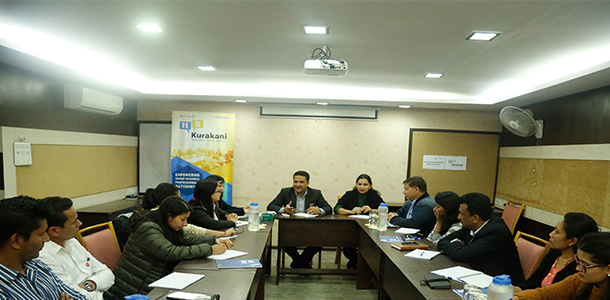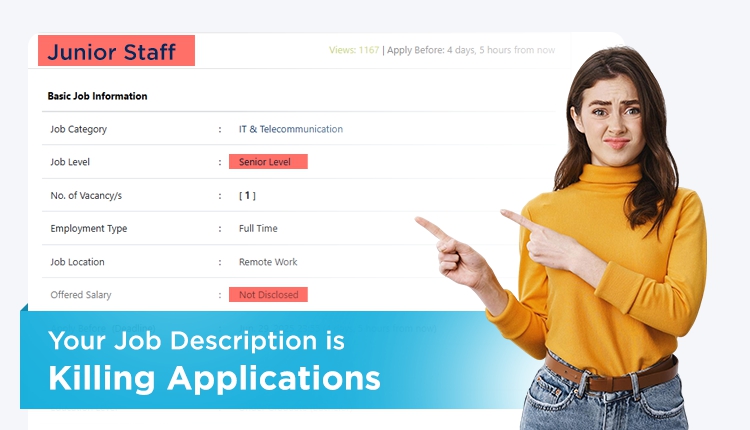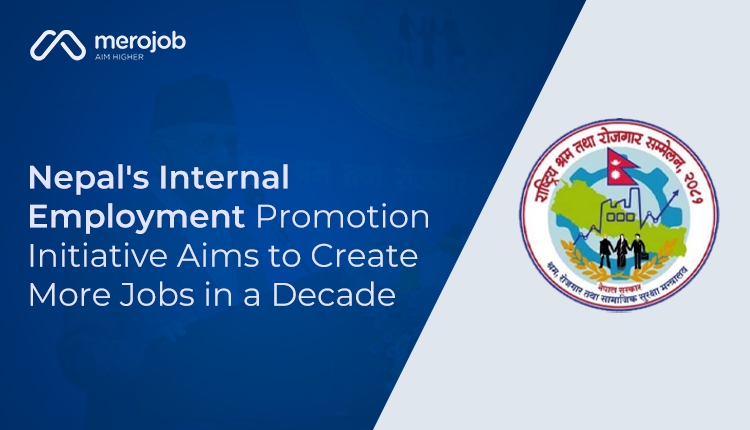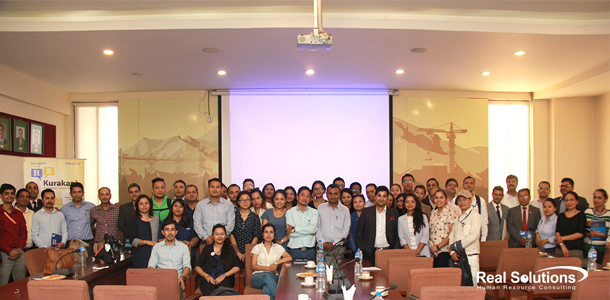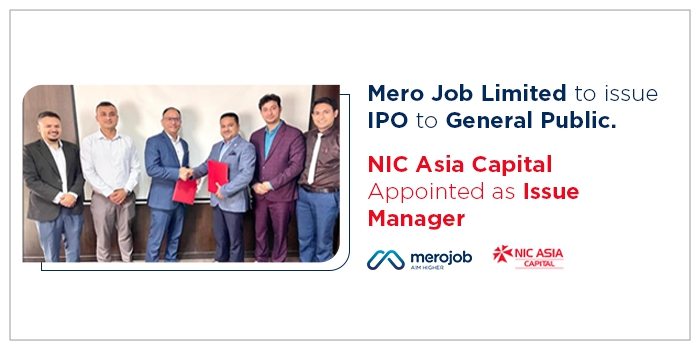Real Solutions Pvt. Ltd. conducted its 59th HR Kurakani on April 29 2017 on the topic “Retaining Employees: Why & How? Retaining employees has been always been as much challenging as hiring them. For the discussion program, HR professionals from various industries gathered at Real Solutions Pvt. Ltd. and shared what retention issues they were and are facing along with probable solutions.
The role of HR being one of the most influencing factors in how long an employee stays in the organization, the main focus of the program was to determine how an HR can create a culture such that employees don’t want to leave the organization.
Lack of career growth, culture & work environment and salary are considered to be the factors majorly responsible for employees leaving an organization. However, these needs differ among individuals from different generations.
The reasons why people decide to stay or leave the organization vary according to generations. “While employees from one generation focus on salary, the other may focus on career growth or prestige”, says Ms. Rasna Shrestha, HR Professional at Javra Software. Retention of the employees is determined by the need and status of an individual, he added.
While developing retention policies and strategies, an organization needs to identify what works well for different group of employees. According to Mr. Ujjwal Sundas, “Mashlow’s Need Hierarchy Theory should be considered while defining the need of individual employee.”
Retention strategies and polices should be developed according to the nature of the organization. For instance, the strategy formulated for private companies may not be applicable in case of I/NGOS or say governmental organization. Thus, need identification is something that must be carried out before formulating retention strategies.
The discussion brought into light that “Pension” is one of the major factors influencing employee retention. The sense of financial security during & after job tenure keeps them motivated throughout their employment period.
Similarly, the characteristics and behavior of employees also largely influences employee retention in any organization. It is seen that if you have a de-motivated employee in an organization, it has a direct effect on the performance and motivation level of his/her coworkers.
This is where the role of HR comes into action. From the initial stage of hiring, HR should work on analyzing the attitude and personality of prospective employees. After the hiring process, HR should continuously act as a counselor to the employees. Timely interview & interaction with the employees will help the HR to understand how the employees are performing and what they expect from the organization. Identification of individual goals, dreams and aspiration is equally important to manage people’s expectations.
Besides HR, line managers or department heads should act and work like an HR for their subordinates. For this, there is a need for the HR managers to train and counsel line managers & department heads.
Employees do not want to stay in the organization if they don’t see where the company is going. Timely communication of growth prospects of the company among the employees is another factor that motivates employees to stay in the organization. Having a trust in the organization and its growth prospects helps employees formulate their career path. But, this should definitely be incorporated with the individual goals of the employees.
Performance management tools like individual goal setting aligned with organizational goals, quantitative performance evaluation, etc. should be integrated in retention policies. This will not only help us to understand where the employee stands, but also clarifies employee’s expectations from his job and the organization.
The discussion brought into light various strategies that would promote employee retention in different organization. The role of HR, line managers and the organization as a whole determines if an employee wants to stay in an organization. Apart from this, participation in decision making, motivational activities, reward & punishment system, performance system are other factors that play a critical role in employee retention.
Employer brand, reputation and job security remains to be the top most factors influencing employee retention. Similarly, organizational culture & the way they value people are another factors that can promote employee retention.
The write-up is based on ‘59thHR Kurakani’ discussion on “Retaining Employees: Why & How?” on March 29, 2017 conducted by Real Solutions Pvt. Ltd. at its office, Min Bawan, Kathmandu. The participants at the discussion included representative from INGOs, trading company, commercial banks, IT, consulting firms and hospitality industries.
